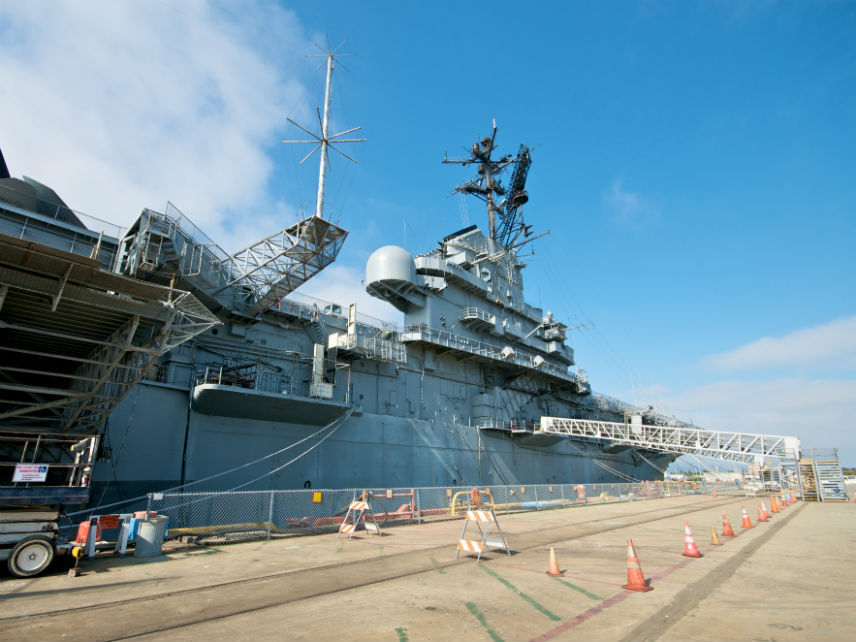How Far Should Blame for Asbestos Go?
- OurStudio

- Dec 28, 2018
- 3 min read

Tangducminh/Dreamstime.com
American law tends to favor people who sue large corporations for liability, particularly plaintiffs who've contracted mesothelioma or other ailments after being exposed to the mineral asbestos, used for decades as a construction material. But is it reasonable to order manufacturers that never made, distributed, or sold asbestos to pay for its ill effects anyway, on the grounds that they had reason to foresee that the mineral would be used in conjunction with the products they did make?
The Supreme Court considered that question when it heard Air and Liquid Systems v. DeVries in October. Questions of tort law like this generally stay in the state court system and seldom make it to SCOTUS. But the Air and Liquid Systems case is an exception. It arises from maritime law, a sector of common law entrusted to the federal judiciary and ultimately to the high court.
In the cases at hand, the Third Circuit court of appeals ruled that Navy sailors harmed by breathing asbestos fibers could sue the makers of various ship components that had been delivered in "bare-metal" form, but were subsequently clad in asbestos insulation or connected using asbestos gaskets.
While the "bare-metal" liability question before the Court will directly affect only cases filed under maritime law, it could easily influence parallel cases arising on dry land. For example, plaintiffs who worked in the automotive trade have sued manufacturers of metal brake components that cut into asbestos pads causing fibers to be released, even though the components themselves contained no asbestos.
Modern asbestos litigation, the largest body of injury litigation in history, has been described as an unending quest for the solvent defendant. Within 30 years of the first breakthrough court decisions in the 1970s, pretty much all makers of the product had been forced into bankruptcy, including many building-materials companies that used the product as one ingredient in products like flooring and roof shingles. Many of the most obvious defendants were either immune from suit—the U.S. Navy in particular, whose commissioning, building, and operation of ships accounted for a large share of exposure—or could be made to pay out only under relatively ungenerous workers' compensation laws. By century's end, lawyers were suing an estimated 2,400 companies. As billion-dollar payouts roll on, lawyers continue to develop new legal theories to sue more and more peripheral defendants in hopes of finding firms that can actually afford to pay judgments.
Thus far, bare-metal liability has not proved a greatly persuasive theory with judges. While Maryland's high court adopted it in a 2015 case, most other state courts, even those in relatively liberal California and Washington, have declined to do so, as did the Sixth Circuit federal court of appeals. When the Third Circuit ruled otherwise, it created a split with the Sixth, making certiorari review by the Supreme Court more likely.
At oral argument in October, all four liberal Justices were outspoken in pushing the case for expanded liability, even as Justice Samuel Alito and other conservatives wondered where the doctrine would stop. Would ashtray manufacturers, having facilitated smoking, be liable for its harms?
One argument, advanced repeatedly in plaintiff-side briefs and echoed by Justice Sonia Sotomayor at argument, is that maritime law takes a particular interest in the welfare of seafarers, and a rule that permits them to win more lawsuits advances their welfare.
But libertarian law professor Richard Epstein, who filed an amicus brief siding with the manufacturers, has the better of the argument. To begin with, he identifies and criticizes the use of legal doctrine here to serve as surrogate (and extremely costly) social insurance: "the bankruptcy of parties that should be liable is no reason to impose onerous liability on parties that should not be liable."
Unpredictable liability drives up the cost of government contracting and, to the extent it falls on shipbuilding, the cost of navigation, another concern of maritime law. Liability for innocent businesses constitutes "a disguised welfare scheme that is inferior in every way to that which is already in place through the United States Navy, which follows its own protocols and is thus virtually certain not to take into account any supposed warnings that the bare metal manufacturer could issue."
The Court is likely to rule on Air and Liquid Systems v. DeVries some time this spring.




Comments